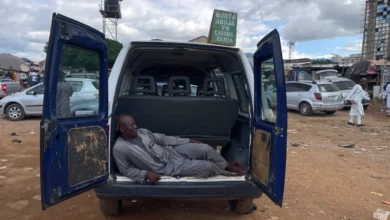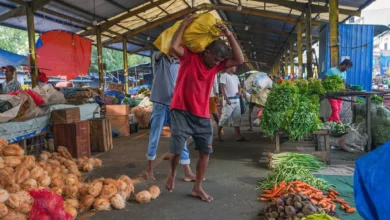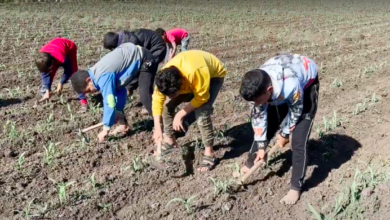Nobody could have mistaken the horror this 6-year-old girl was experiencing. Nothing more tells of the fear that gripped her than the warm yellow fluid running down her short legs as her knees started to shake. Her heartbeat escalated as the quiver of her little lips began.
I followed her gaze at the door of the drop-in center for street children she was at. An angry man with blank eyes stood gazing back at her. It was her father, who had found out where she was spending the day.
There is little the staff at day-care centers can do to stop parents from coming to take their children — little they can do, even if the parents themselves had signed the child in to permanent shelters. The law handicaps those who are trying to protect vulnerable children from abusive parents.
The staff had to watch Taghreed being pulled by the wrist as she wet herself leaving the shelter, to which she had escaped during one scorching afternoon. All they could do was pray they would see her again, minus the scars and bruises she had when she had previously returned to them.
Taghreed is not a lone street child. She has lived all her small number of years in the street with her father, mother and siblings. They are travelers living in the streets of the cities, migrating back and forth between them, depending on which one has a moulid festival in which the father can use his kids to sell little plastic toys, or to beg, if that doesn’t work.
Of course, our society is one of alms. But it is rare to care about where those alms go or what would be more effective than giving a few pounds.
Taghreed didn’t like selling stuff, only for her father to take the money. She didn’t like her father either — understandably.
When Taghreed found her way back to the day-care center after a couple of weeks, the psychologist asked her why she was so afraid of her father, when she was such a strong little girl herself. Without shame, Taghreed recounted the ways in which her father ties her up in metal chains, locking the shackles at her ankles and wrists, and beating her until he can no longer lift a finger.
Many street children lie to gain sympathy in hope for a pound or two. But Taghreed knew Shaimaa, the psychologist, was not going to give her money. Taghreed’s body bared witness to the genuineness of her account.
Taghreed eventually ran away. She shaved her hair, bound her breasts and lived as a boy, trying to protect herself on the streets. Later, she told me she could forgive those who did her wrong on the street far more than the parents she knew were meant to protect her.
Taghreed is one of the most special and beautiful girls I have known. She is trustworthy and loyal, and never forgets a good deed done for her.
Taghreed now is older. She has a 5-month-old baby. She tells me her dream is to get an ID for herself and her child.
That’s it — that is what she dreams of. But it’s a dream none of us who love and care about her have found ways to realize.
Taghreed’s parents are not married. Her father beats her every time she tries to convince him to go with her to get an ID, and the complicated state bureaucracy we have means she cannot get it done without him.
So unlike women fighting for equal rights, for employment rights, for child care rights and for divorce rights, Taghreed is a young woman fighting for the right to exist in the state and the right to be recognized as a citizen — the right, in her own words, “to be human.”
These are not things that we, as a society, can cure by giving a few pounds to passing street kids we feel sorry for, or a few pounds of meat during Eid to satisfy a religious obligation.
We must, as the “honorable” citizens we like to think of ourselves as, be outraged that some are still fighting to hold pieces of paper that ensure them basic treatment at a hospital if they fall ill, or a basic education for them or their children.
We must be so outraged, as this rage might bring about change. We must refuse the social contracts we are in if they do not embrace those too poor, too weak, too scared to fight their way into our worlds — worlds in which we have become so blind that we are surprised to hear that some do not hold IDs.
I know some people who had their ID issued the same day it was requested while they were in a foreign country because they had the money and connections. Taghreed has spent 10 years of her life being beaten and abused, and she is even denied the right to officially exist.
If you are reading this and know any way to help Taghreed get her ID without her father having to be there, without her parents having to be married, email me at [email protected]. Taghreed and I need to hear from you.
If you can’t, then tell everyone you know — tell them that before we concern ourselves with which hand to eat so that the devil won’t join us, we must extend our hands to those whose wrists are tied in chains. Tell them that before we concern ourselves with not entering the toilet with our left foot, we must first concern ourselves with lifting the feet that step on the weak, because their voices don’t make their way to our ears.
Taghreed once gave herself to a violent gang rape to save a new virgin on the street. The least that sort of braveness and humanism deserves is an ID.
Nelly Ali is a human geographer doing her PhD at Birkbeck College, University of London. She works with street girls and young street mothers in Cairo.




